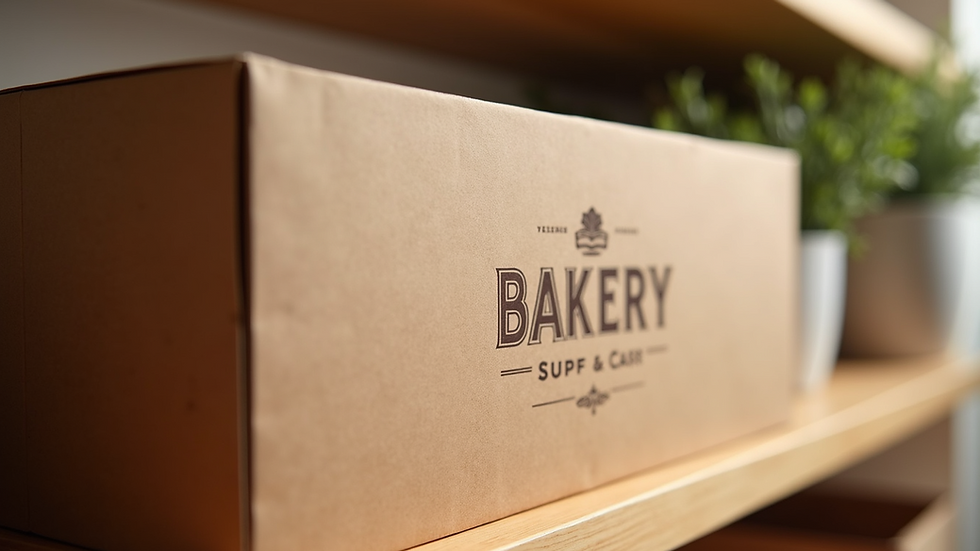Navigating Procurement Challenges: Insights from the Hospitality Industry
- Apr 30, 2024
- 3 min read
The hospitality industry is known for its fast-paced and ever-evolving nature, and procurement is no exception. With increasing demand for personalized experiences, rising costs, and complex supply chains, hospitality businesses face unique procurement challenges. In this blog, we'll explore the common procurement challenges faced by the hospitality industry and how Horeca Stop's consultancy services can help businesses navigate these obstacles.

Challenge 1: Managing Supply Chain Complexity
The hospitality industry's global supply chain is intricate, with multiple stakeholders and vendors involved. According to a study by Deloitte, 60% of hospitality professionals struggle with supply chain visibility. Horeca Stop's consultancy services can help businesses streamline their supply chain, ensuring transparency and efficiency.
Challenge 2: Balancing Quality and Cost
Hospitality businesses must balance providing high-quality services and products while controlling costs. A study by Hospitality Technology found that 70% of hoteliers prioritize cost savings when selecting suppliers. Horeca Stop's consultancy services can help businesses negotiate with suppliers, ensuring quality and cost-effectiveness.
Challenge 3: Ensuring Compliance and Sustainability
The hospitality industry faces increasing pressure to prioritize sustainability and comply with regulations. According to a study by Green Lodging News, 75% of hoteliers consider sustainability when selecting suppliers. Horeca Stop's consultancy services can help businesses implement sustainable procurement practices and ensure compliance with industry regulations.
Challenge 4: Managing Data and Analytics
The hospitality industry generates vast amounts of data, but leveraging this data for procurement insights can be challenging. A study by Procurement Leaders found that 65% of procurement professionals struggle with data analysis. Horeca Stop's consultancy services can help businesses harness the power of data analytics to inform procurement decisions.
Challenge 5: Building Strong Supplier Relationships
Collaborative supplier relationships are crucial in the hospitality industry, but building and maintaining these relationships can be difficult. According to a study by Supply Chain Management Review, 80% of procurement professionals believe that supplier relationships are essential for success. Horeca Stop's consultancy services can help businesses develop and nurture strong supplier relationships.
Conclusion
The hospitality industry faces unique procurement challenges, but with the right expertise and support, businesses can overcome these obstacles. By leveraging Horeca Stop's consultancy services, hospitality businesses can streamline their supply chain, balance quality and cost, ensure compliance and sustainability, manage data and analytics, and build strong supplier relationships. With Horeca Stop's guidance, businesses can navigate procurement challenges and achieve success in the ever-evolving hospitality landscape.
Empirical Evidence:
60% of hospitality professionals struggle with supply chain visibility (Deloitte)
70% of hoteliers prioritize cost savings when selecting suppliers (Hospitality Technology)
75% of hoteliers consider sustainability when selecting suppliers (Green Lodging News)
65% of procurement professionals struggle with data analysis (Procurement Leaders)
80% of procurement professionals believe that supplier relationships are essential for
success (Supply Chain Management Review)
By partnering with Horeca Stop, hospitality businesses can overcome procurement challenges and achieve greater efficiency, productivity, and profitability.
FAQs
What are some common procurement challenges faced by the hospitality industry?
Common procurement challenges include managing supply chain complexity, balancing quality and cost, ensuring compliance and sustainability, managing data and analytics, and building strong supplier relationships.
How can businesses streamline their supply chain in the hospitality industry?
Businesses can streamline their supply chain by improving visibility, transparency, and efficiency through the use of technology and strategic partnerships.
What strategies can hospitality businesses use to balance quality and cost in procurement?
Hospitality businesses can balance quality and cost by negotiating with suppliers, implementing cost-saving measures, and prioritizing value over price.
How important is sustainability in procurement for the hospitality industry?
Sustainability is increasingly important in procurement for the hospitality industry, with many businesses prioritizing environmentally friendly practices and suppliers.
What role does data analytics play in overcoming procurement challenges?
Data analytics can help businesses gain insights into their procurement processes, identify areas for improvement, and make informed decisions to optimize their supply chain.
How can businesses build strong supplier relationships in the hospitality industry?
Businesses can build strong supplier relationships by communicating effectively, being transparent, and collaborating on shared goals and objectives.
What are the benefits of partnering with consultancy services like Horeca Stop for procurement?
Partnering with consultancy services can help businesses navigate procurement challenges, improve efficiency, reduce costs, and achieve greater sustainability and compliance.
How can businesses ensure compliance with industry regulations in procurement?
Businesses can ensure compliance by staying informed about regulations, working with reputable suppliers, and implementing internal policies and procedures.
What are some key considerations for managing data and analytics in procurement?
Key considerations include data quality, data security, integration of data sources, and the use of analytics tools to extract meaningful insights.
How can businesses stay updated with the latest trends and best practices in procurement?
Businesses can stay updated by attending industry conferences and events, networking with peers, and engaging with industry publications and resources.




Comments